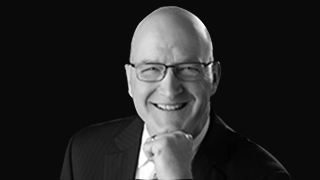ICR Podcasting Network Presents: “Reducing the Mismatch”
Wednesday, December 8, 2021

J. Michael Stebbins, Ph.D., the Toth/Lonergan Visiting Professor of Interdisciplinary Studies here at Seton
Hall, writes and hosts this edition of the podcast, a project which has been on his
mind for many years. The idea was formed when Stebbins read the work of Bernard Lonergan
as a junior at Gonzaga University. Stebbins found Lonergan's work helpful in making
sense of the world and the self. Stebbins cites Lonergan's Insight: A Study of Human Understanding as the work which most inspires his studies and this podcast. "Since [I read that]
book," said Stebbins, "I've read lots of works on cognitional theory and still haven’t
found anyone who provides a more comprehensive framework for thinking well and making
choices and how they’re interrelated."
This episode shares "thoughts on why the way we go about figuring things out matters
so much; and offer[s] some suggestions that might help us do it better." Topics such
as the desire for truth, verifying the correctness of our understanding, and how to
approach disagreements with others about our understandings are all delved into in
this first installment. Stebbins concludes the episode with this call to action: "Let’s
strive to be conduits of truth. Let's take responsibility, each one of us, for the
way we’re making sense of the world. Together, let's try to live in the world as it
actually is."
The subjects addressed in this podcast are timely and relevant, Stebbins asserts,
because "the challenge we face today is in many ways harder than ever." The world,
as described in the pilot episode, is increasingly complex and changing at a rapid
pace, and helpful information is sometimes unavailable or inaccurate. How, then, can
humans accurately assess and gain understanding of the world around them? This podcast
offers insight into how to do just that.
The podcast will be featured on Seton Hall's WSOU radio station, as well as distributed through Seton Hall's podcast feed network.
Other episodes on the ICR feed include "Internet Memes and American Civil Religion" (where Texas A&M Professor Heidi Campbell speaks about how digital media and memes
are used to represent different religious ideas in the public space) and several editions
relating to facets of the 2020 presidential election, with "Judaism and Christianity in the 2020 Election" as a prime example. The latter episode features a conference hosted by McKenna Schray,
who guides Peter Beinart and Jon Radwan through a discussion on the conference topic:
How does communication and religion come into play during a presidential election?
The ICR's second podcast feed, Inter/Sections, is produced in partnership with the Journal of Interreligious Studies, a collaborative publication of Boston University School of Theology, Hebrew College,
and Hartford Seminary. The latest upload, "The Pluralism Project: A Conversation with Diana Eck," sees host Bernie Wagenblast sit down with Project Director Diana Eck to discuss
the Project's mission, past, and future. Eck speaks on the difference between diversity
and pluralism, as well as America's changing demographics and attitudes toward religious
issues.
About the Institute for Communication and Religion
Launched in Fall 2017, the Institute for Communication and Religion within the College of Communication and the Arts provides a nexus for ongoing scholarly exploration of communication topics critically
important to religion and society. Guided by the spirit of ecumenical and interreligious
cooperation, the Institute seeks to engage in public dialogue and debate, promote
academic inquiry and support the religious dimension of creativity — all while upholding
the values of servant leadership, curricular innovation and intellectual excellence.
For more information click here to visit the Institute for Communication and Religion.
Categories: Arts and Culture, Faith and Service






